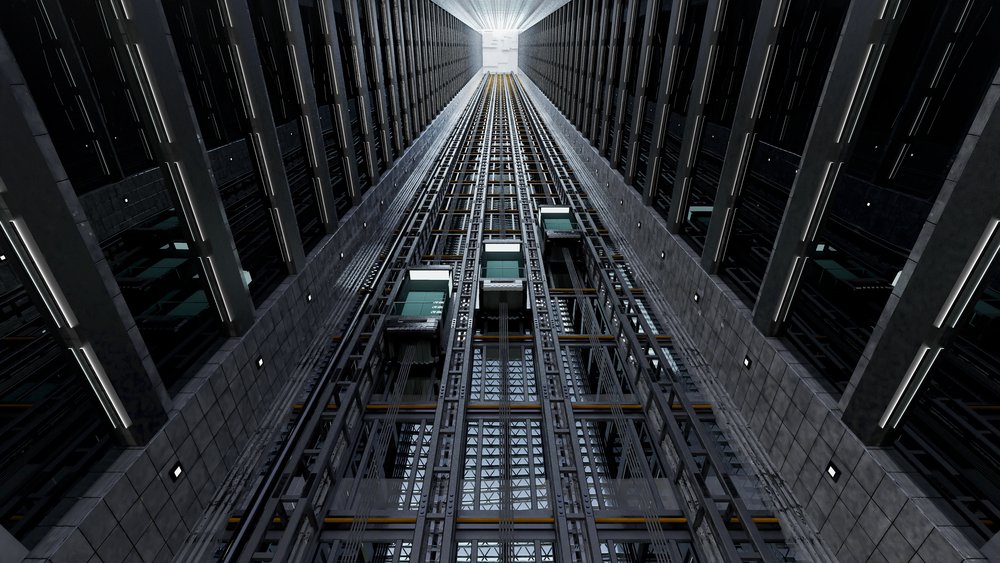Even if you jumped at the exact moment of impact, you would change your velocity only a tiny amount. This minute change in your velocity would be insignificant regarding the severity of injuries you would sustain.
When you climb in an elevator, you essentially enter an enclosed metal ‘box’ that relies entirely on machinery, which depends on electricity. That leads to a relatively natural question: what if there is a power failure when you’re inside an elevator?

A particular idea or “rumor” related to elevators makes the rounds from time to time. It says, ‘If you happen to be in an elevator that is in free fall, you can jump at the precise moment when the elevator hits the ground. This little leap will save your life or at least reduce the degree of your injuries.
That sounds rather cool, but is there any actual truth to this?
Recommended Video for you:
A Free Falling Elevator
An elevator is said to be in free-fall when it falls through the levels of the shaft after being ‘freed’ from the effect or control of the tools and systems responsible for its safety. In other words, the free fall of an elevator is very bad news. Being in one while it plummets to Earth is even worse.
An elevator travels through different levels of a building with the help of several systems; these ‘security’ systems keep the elevator in place and the riders safe.
However, due to certain technical complexities, these systems may cease functioning suddenly (although the probability of that happening is very low).

If you are really unlucky and happen to be in an elevator as it plummets to the ground, what would happen?
Also Read: Why Do You Feel Strange In An Elevator Just After It Starts/Stops?
Standing Still In A Free-falling Elevator
Since the elevator is in free fall, gravity is the only force contributing to its fall. Therefore, the elevator will travel downwards with an acceleration of 9.8 meters per second squared (the standard acceleration value due to gravity).
Since you are inside the elevator, you are also moving downwards at the same velocity as the elevator.
Note that this happens only when you are standing completely still, not moving at all in the free-falling elevator.
Also Read: Why Are Elevators Safer Than You Thought?
Jumping As The Elevator Hits The Ground
Let’s assume that you walked out of a Physics class just before entering that fateful elevator that is now falling freely to Earth. Just as it nears the ground, you time your leap and jump! An impressive achievement in that panicked moment, but would it actually help?
NO.
Let’s look at the factors involved here; first off, it would be almost impossible for you to know what floor you were level with while experiencing a free fall. Assuming that there was a power outage, how would you know the precise moment at which to jump? Even if, by some miracle, you jumped at precisely the right moment, would you be able to walk away unscathed?
No, you would definitely still sustain injuries. The severity of those injuries would depend on the height of your fall; the higher you fall, the more acceleration and force of impact, increasing the severity of your injuries.
Why Jumping In A Falling Elevator Is A Terrible Idea
Firstly, the intensity of impact you experience upon hitting the ground is determined by your momentum. Momentum is the product of your mass and velocity. The injuries would be more severe if the elevator had been in free fall for longer. The reason is that a longer period of free fall results in greater momentum, ultimately causing more overall damage.
Also, if you jumped even a little before the elevator struck the ground, you would crack your head against the elevator’s ceiling, causing even more damage. Even if you jumped at the exact moment of impact, you would change your velocity only a tiny amount. This minute change in your velocity would be insignificant regarding the severity of injuries you would sustain.
After learning all that, don’t let anyone infect you with the idea that jumping in a free-falling elevator is some fail-safe method to avoid injuries; there is no way that you can walk out of a disaster like that unscathed unless you are just really, really lucky. However, don’t worry! Elevators are incredibly safe. Don’t fret, and enjoy the ride!
Last Updated By: Ashish Tiwari
References (click to expand)
- If You're in a Falling Elevator...! | Physics Van | UIUC.
- How to Survive an Elevator Free Fall.
- Baluković, J., Slisko, J., & Cruz, A. C. (2018, March 1). A Person Stands on a Balance in an Elevator: What Happens When the Elevator Starts to Fall?. The Physics Teacher. American Association of Physics Teachers (AAPT).













